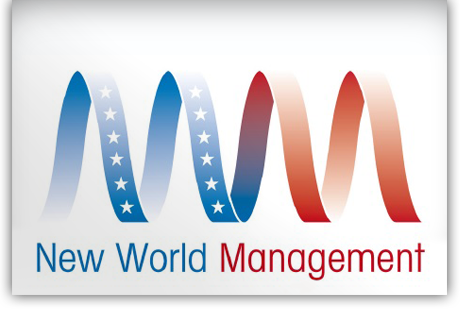Finding the Right Location for your U.S. Business
Almost every company looking to set up a business in the U.S. has experience searching for a location at home. Still, an alarmingly large number make poor decisions about where to open their doors.
The simple fact is that the U.S. is big, especially in the eyes of management that is unfamiliar with its geography. While it’s easy to throw darts at a map and see where they stick, a safer bet is to consider relevant business factors in choosing where to establish your subsidiary.
Applying the same rigor you would at home is the way to succeed in selecting a location.
Take a look at these key points to keep in mind when selecting a location with room for your business to succeed:
Access to labor
The president of one Swiss industrial supply company enjoyed skiing, and chose to locate his business in Vermont. The location made recreational sense but not much business sense as the company struggled to attract qualified executives. Managerial talent is an important asset for any business looking to establish itself. Place your business in a location that attracts the type of people you want running it.
Connection to Infrastructure
The offer sounded great: A German entrepreneur was offered an office building through a regional Economic Development agency. The price: $1. The problem: The office was located in a small town in the most remote region of the U.S. with a 6-hour ride to the nearest airport. Qualified labor was very hard to find and the journey for business partners and staff from the parent company was extremely difficult and long. What looked like a great solution turned out to be a very poor decision. Make sure that an airport (ideally with international connections) is located in the vicinity of your new office / facility. This will make business travel and the transportation and shipment of materials and products much easier.
Cost of labor
Make sure hiring the right people doesn’t cost you an arm and a leg. Take into account the socioeconomic differences between different regions. The base salary that attracts a skilled executive in Pittsburgh might be small compared to that in New York. Pick a location where the price of talent fits your budget. Keep in mind, that the average salary in metropolitan areas (such as New York, San Francisco or Chicago) will be higher than in regions which lower population density.
Proximity to customers
Just as important as your own personnel are the people you are looking to sell to. Lay the foundation for strong customer relationships by picking a location that facilitates quick and easy interaction. Headquartering yourself in a remote location, miles away from your client base, will mean higher shipping costs, longer response time to customer issues, and more frustration and hassle in trying to communicate.
State taxes and regulatory policies
Government policy represents yet another cost factor that varies by region. Once again, research is key. Turn to the data to compare tax rates and other regulations between states and consider how they will affect your business. At the same time, pay careful attention to differences in state regulations on your industry. Although some businesses need not be concerned, others pay dearly to conform to standards they could be exempt from depending on location.
Energy costs
Again, the relevance of this factor varies by industry, but its impact on certain manufacturers is heavy and often overlooked. Simply put, the cost of energy varies widely by state and even within states. If your business’s manufacturing process demands a large amount of energy, think about differences in cost.(The most recent energy prices can be found on the U.S. Energy Information Administration website: EIA – Electric Power Monthly).
Time difference
San Francisco is nine hours behind Frankfurt. In other words, at the end of the business day in Germany, the staff of your California subsidiary is still at home having breakfast. Setting up an office where business hours have little overlap with those of your headquarters is a recipe for major inconvenience. If quick communication is important to you, make sure half your workforce isn’t asleep while the other half is doing business.
Sales motives of municipal agencies
It happens time and time again. Private or government owned agencies go fishing for a business that will buy up lousy real estate they want to get off their hands. They lure the buyer in with dirt-cheap prices and companies take the bait, only to realize later that the location is ill suited to their business’ needs. (An example was described above in section 2). Cost is certainly important to take into account when selecting a location for your subsidiary, but looking to minimize overhead with no regard for what you’re losing is not a worthwhile strategy. Approach your location search with diligence and consider whether any deals you’re being offered are too good to be true.
Market research
We’ve listed a number of factors important to consider when planning your entry into the U.S. While these points apply to a wide range of foreign businesses, they do not take into consideration the particular ins and outs of individual markets. Market research fills in the blanks by giving you (among other details) the full picture of your industry’s geographical layout. The result is a clear recommendation on where to establish your business based on factors in the existing market. Certain firms even specialize in conducting analysis for European companies.
Businesses approaching the U.S. often fall victim to the same mode of thought, one brought on by the anxieties of entering a new market. These companies are overwhelmed. They feel that the U.S. is so vast that the best they can do is to settle for a particular location and hope it works out. The fact is that any company successful enough to be considering overseas expansion has the business experience to do better than this.
Take a minute and forget that you are operating within an unfamiliar market. Imagine the ideal location for your company and pretend you are shopping for it at home. Is that real estate in a remote area, or a well-connected business hub? Is it close to customers? Is it close to labor? And is the price right?
Applying the same rigor you would at home is the way to succeed in selecting a location. Engaging the resources of a research firm is the way to guarantee that success. Don’t be intimidated into placing your business in a spot that will suffocate its potential. Examine your options with diligence, seek out the best choice, and plant your feet firmly on the ground when you start doing business in the U.S.









